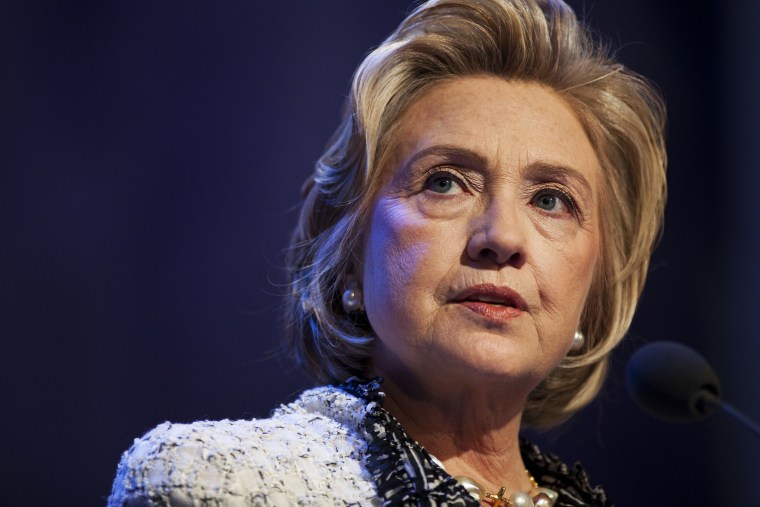A Clinton is stumping in a purple state. A Bush is calling for compassionate conservativism.
And the 2016 presidential race is starting to feel like it just might party like it's 1992.
Two strong possible contenders -- Hillary Clinton and Jeb Bush -- reappeared on the political stage in recent days, sounding presidential. And while it's too soon to say who'll land on the top of the ticket in three years, there's a chance it could be Clinton v. Bush all over again.
The biggest challenge for both hopefuls: winning over their party's base.
Progressive have long been skeptical of Clinton, and that hasn't changed. And Bush has come under attack for his positions on immigration reform and health care from tea party conservatives and even some more moderate Republicans.
Hillary Clinton hit the campaign trail for the first time in five years to boost her old friend Terry McAulliffe in Virginia, where he's running for governor. But the event, of course, became more about her, as the crowd chanted her name as she described the GOP’s recent moves as “scorched earth over common ground.”
“I’ve seen leaders that are divisive and I’ve seen leaders that are unifiers, leaders who are exclusive and l’ve seen leaders who are inclusive,” she said. "In Washington, unfortunately, we've seen examples of the wrong kind of leadership.
While the former Secretary of State has been out of electoral politics for years, the prospect of another Clinton presidential run has never dropped out of the public’s imagination – and progressives’ nightmares.
Some Democrats, like House Minority leader Nancy Pelosi, D-CA, are already optimistic about Clinton’s chances. “I hope she runs…and she will win, I believe, if she runs,” Pelosi said Sunday on ABC’s This Week.
Progressives aren’t so sure. In an article in The Nation earlier this month, Richard Kim, executive editor of TheNation.com, wrote that it’s “hard to imagine a Democrat of national stature more ill-equipped to speak to this populist mood than Hillary Clinton.” While Clinton stumps for McAuliffe and Democratic New York City Mayoral candidate Bill De Blasio, activists are already looking for alternative candidates, such as first term Massachussetts Senator Elizabeth Warren.
Bush, the former governor of Florida, reemerged in the last week on cable TV shows calling for Republicans to come up with their own plan to help millions of uninsured Americans get health insurance -- an idea that pits him against Hill Republicans who have focused much more on "repeal" than replacing Obamacare.
On Morning Joe last week, he said that the Republican party needs to create a more constructive agenda and stop functioning only in opposition to President Barack Obama's agenda. He also pointed to the 30 Republicans serving as state governors as examples of what members of the party should be doing rather than “overreaching.”
Bush laid low after remarks he made in June in favor of immigration reform made him a target of far-right movement leaders. After Bush said that "more fertile" immigrant populations could alter a future of "fewer workers taking care of a larger share of people that the country has a social contract with," he earned derisive quips from Sarah Palin and set himself against former Rep. Michele Bachmann, who railed against "the legalization of over 30 million illegal aliens," and questioned intelligence of undocumented immigrants.
Rush Limbaugh is not a Bush fan either, and will likely have a similar response to Bush's recent remarks as he did to the former governor's June assessment of the GOP's 2012 losses. When Bush said, at the same June Faith and Freedom conference as he made his pro-immigration remarks, “we got beat because our brand is perceived to be tarnished, to be reactionary, to be too negative rather than hopeful and positive,” Limbaugh decided Bush is just too moderate to be a part of the Republican party's future. “We didn’t lose because the brand is perceived to be tarnished because it’s reactionary,” he said. “We lost precisely because the party is considered wishy-washy and mushy and doesn’t stand for conservatism anymore.”
But if he and Clinton both survive, it'll still only be the beginning of the fight.
